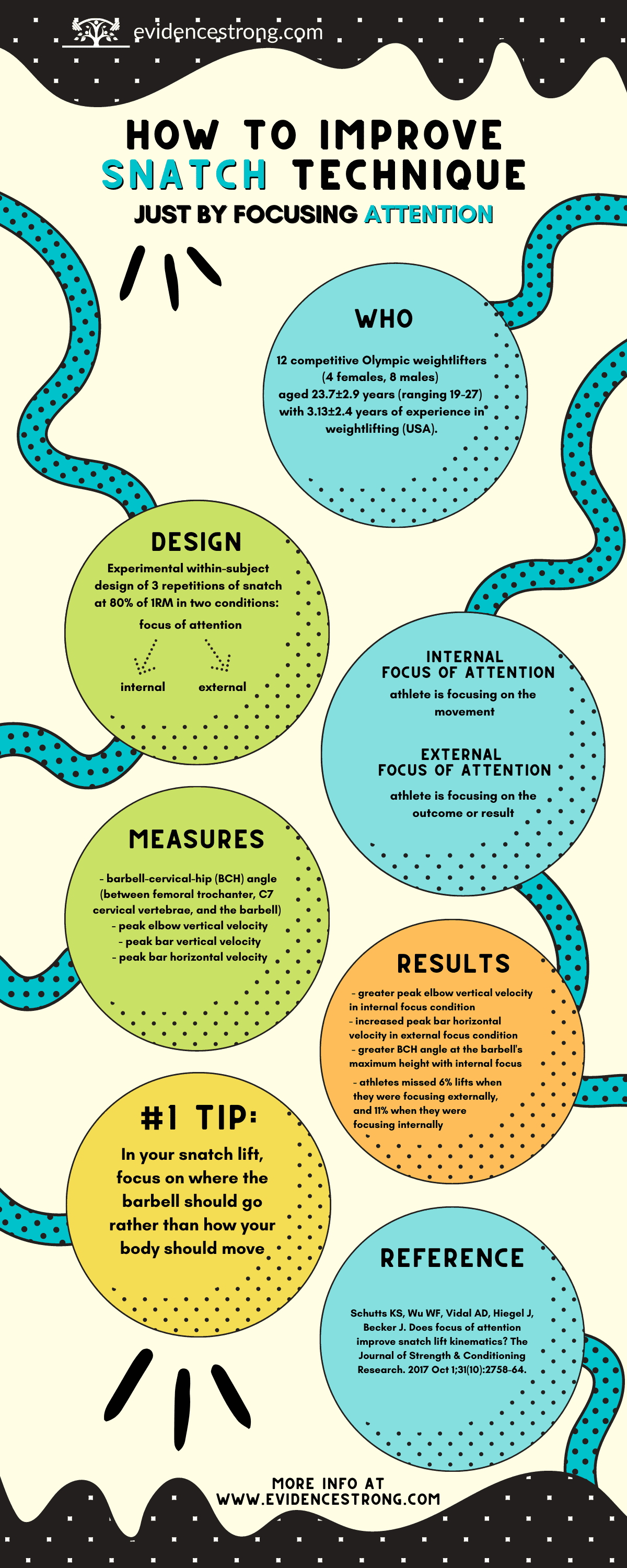Summary of an article on how the internal or external focus of attention changes biomechanics of snatch in Olympic weightlifting.
Who
12 competitive Olympic weightlifters (4 females, 8 males) aged 23.7±2.9 years (ranging 19-27) with 3.13±2.4 years of experience in weightlifting (USA).
Design
Experimental within-subject design of 3 repetitions of snatch at 80% of 1RM in two conditions: either external or internal focus of attention.
internal focus of attention (FOA) – when the athlete is focusing on the movement. For example, concentrating on moving the elbows high and to the side rapidly.
external focus of attention (FOA) – when the athlete is focusing on the outcome or result. For example, concentrating on moving the barbell back and up.
Outcome measures
- kinetics of bar and lifter in snatch:
- barbell-cervical-hip (BCH) angle (between femoral trochanter, C7 cervical vertebrae, and the barbell)
- peak elbow vertical velocity
- peak bar vertical velocity
- peak bar horizontal velocity
Main results
Attention focus influenced peak elbow vertical velocity, peak bar horizontal velocity and BCH angle at the barbell’s maximum height:
- greater peak elbow vertical velocity in internal focus condition
- increased peak bar horizontal velocity in external focus condition
- greater BCH angle at the barbell’s maximum height after internal focus cue. This indicates that the lifter begins dropping under the barbell and squatting too early.
Attention focus did not affect BCH angle at other phases of snatch, and peak bar vertical velocity.
Athletes missed 6% lifts when they were focusing externally, and 11% when they were focusing internally.
Take home message
Original article
Schutts KS, Wu WF, Vidal AD, Hiegel J, Becker J. Does focus of attention improve snatch lift kinematics?. The Journal of Strength & Conditioning Research. 2017 Oct 1;31(10):2758-64.
